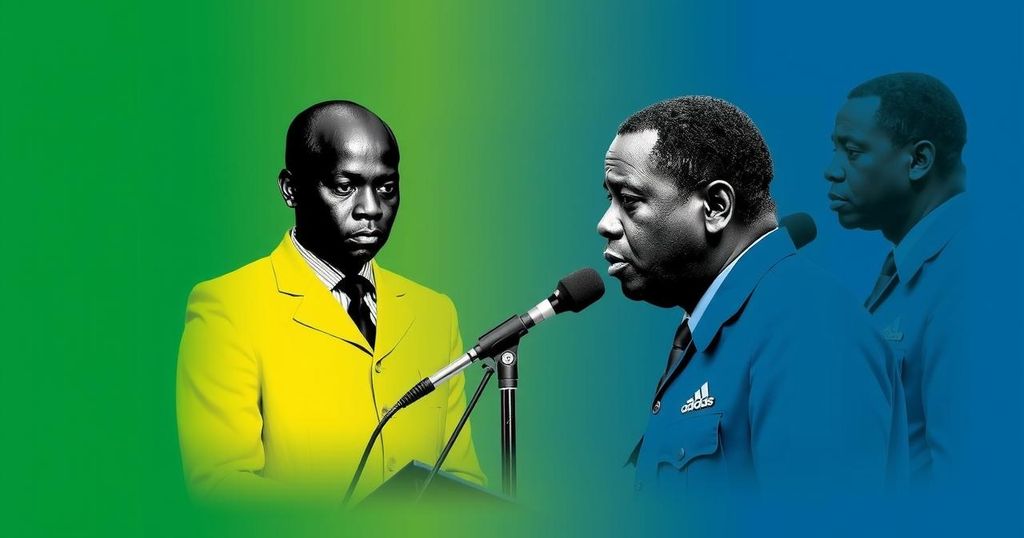Gabon is voting on a new constitution aimed at democratization after last year’s military coup that removed President Ali Bongo. The draft charter includes measures such as presidential term limits and bans on family succession. Transitional leader General Brice Oligui Nguema advocates for the proposal, aligning it with a commitment to national reform, amid concerns that it may entrench military power as elections approach in 2025.
Gabon is currently engaged in a pivotal referendum aimed at adopting a new constitution that seeks to facilitate a transition to democratic governance following the military coup that ousted President Ali Bongo Ondimba last year. With roughly 860,000 registered voters participating, the referendum presents a draft charter proposing critical changes, including presidential term limits and restrictions against dynastic succession, thereby marking a potential shift in the country’s political landscape after 55 years of Bongo family rule. Transitional leader General Brice Oligui Nguema has endorsed the charter, asserting that it encapsulates the military regime’s commitment to democratic reforms and promises a two-year transition period before returning power to civilians.
As Gabon attempts to reclaim a democratic structure post-coup, the central question remains whether the proposed constitution will garner the necessary majority for adoption, requiring over 50 percent approval. Nguema, who has openly expressed aspirations to contest the upcoming presidential elections in August 2025, faces criticism for allegedly crafting a legal framework that consolidates power within a military strongman context. The new constitution stipulates a two-term presidential limit of seven years, abolishes the role of prime minister, and enshrines French as Gabon’s operational language, while precluding direct family succession. Opposition voices remain vocal about the charter’s implications, labeling it a blueprint for potential autocracy.
The current political environment in Gabon is shaped by the recent overthrow of President Ali Bongo Ondimba, a move that ended a long-standing political dynasty that had dominated the country for over five decades. Following his ouster, the transitional government, led by General Brice Oligui Nguema, is seeking to introduce reforms through a new constitution aimed at granting Gabon a more democratic framework. The significance of this constitutional referendum lies in its potential to fundamentally alter governance, promote accountability, and address issues of nepotism and longstanding political elitism in Gabon, which, while rich in oil resources, grapples with high unemployment rates reflecting deep socioeconomic disparities.
The referendum taking place in Gabon represents a critical juncture in the nation’s political evolution, moving towards possible democratic reform after decades of autocratic rule. The proposed changes within the draft constitution, particularly the introduction of presidential term limits and the prohibition of dynastic leadership, are significant steps in redefining governance in Gabon. However, there remains skepticism regarding the transitional leadership’s commitment to truly democratic processes, raising concerns about the implications of the proposed system for Gabon’s future political stability.
Original Source: www.aljazeera.com






